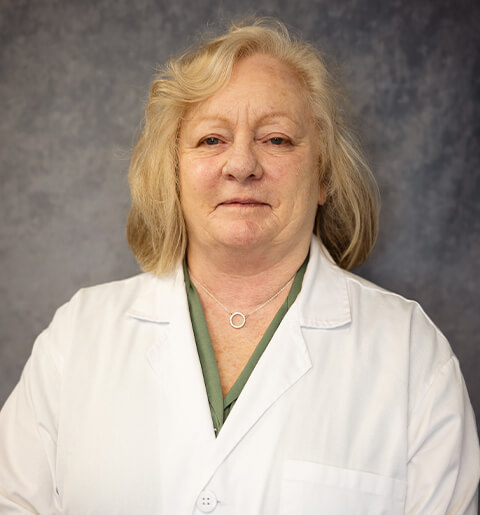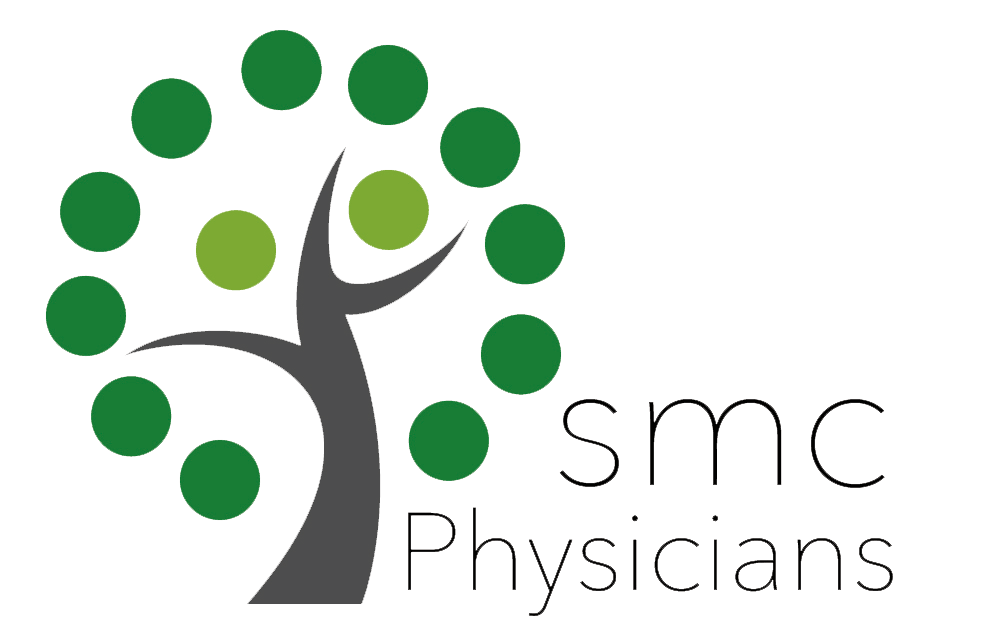Endocrinology & Rheumatology
Osteoporosis Center
Osteoporosis describes bones that have become much thinner and weaker than usual, making them more susceptible to fractures. It is often called a “silent disease” because it develops slowly without symptoms and affects millions of people worldwide. Many people don’t realize they have osteoporosis until they suffer a broken bone. This is why it’s essential to be aware of the risk factors and take steps to prevent the condition.
What Are the Risk Factors for Osteoporosis?
Both men and women can have osteoporosis, but some factors put you at higher risk:
- Age: Bones become thinner and more fragile as we age, making them more prone to fractures. People over age 65 are at higher risk.
- Gender: Osteoporosis is more common in women, especially after menopause, when estrogen levels decrease.
- Genetics: Some people are more susceptible to developing osteoporosis due to their genes.
- Family history: Osteoporosis tends to run in families.
- Body size: Small, thin women are at greater risk of developing osteoporosis.
- Diet: A diet low in calcium and vitamin D can increase your risk of developing osteoporosis.
- Lifestyle factors: Lack of exercise, smoking, and excessive alcohol consumption can also increase the risk of osteoporosis.
- Other factors: Rheumatoid arthritis, hyperthyroidism, celiac disease, and long-term use of medications like corticosteroids and anticonvulsants may increase the osteoporosis risk.
How is Osteoporosis Diagnosed?
Your doctor may recommend a bone density test (or DEXA scan), which measures the density of bones in the spine, hip, and other parts of the body, to help determine if you have osteoporosis or are at risk for developing it.
Can Osteoporosis Be Treated?
Several treatments are available for osteoporosis:
- Medications: Certain medications can slow down bone loss and reduce the risk of fractures.
- Preventing falls: Taking steps to prevent falls, such as removing tripping hazards, improving lighting in the home, and installing grab bars, can help reduce the risk of fractures.
- Calcium and vitamin D supplements: These supplements can help improve bone health and reduce the risk of fractures.
Preventing Osteoporosis
Eating a healthy diet, exercising, and avoiding smoking and alcohol consumption can all help reduce the risk of osteoporosis. There are things you can do every day to build strong bones.
A basic healthy diet includes:
- Plenty of fruits and vegetables
- Plenty of fiber (beans, lentils, oats, whole grains, fruits & vegetables)
- Palm-sized portions of protein at each meal to support muscle and bone
- Plenty of calcium-rich foods such as leafy green vegetables, milk and yogurt, tofu, beans, and other calcium-fortified foods.
- Unsaturated fats (oily fish like salmon, mixed nuts like walnuts and almonds)
- Few animal-based saturated fats (butter and fatty red meats)
- Few or no highly processed foods (most packaged sweets and snacks)
Just like muscles, bones will get stronger if you give them a workout. Weight-bearing exercises that force your body to work against gravity as you move are best for your bones.
Weight-bearing exercises include:
- Aerobics
- Climbing stairs
- Dancing
- Jogging
- Tennis and other racket sports
- Running
- Tai chi
- Walking
- Water aerobics
- Yoga
A diagnosis of osteoporosis is a call to action and a condition that you have the power to improve with your doctor’s help.
If you have risk factors for osteoporosis or suspect you may have the condition, it’s important to seek medical evaluation and take steps to prevent or manage it. Schedule an appointment with our Endocrinology or Rheumatology team to receive a comprehensive assessment, personalized treatment options, and expert guidance on lifestyle modifications, medications, and preventive measures. Take control of your bone health and reduce the risk of fractures by scheduling an appointment today.
Conditions We Treat
We provide ultrasound-guided arthrocentesis (joint injections) of both steroids and gel injections such as Orthovisc and Synvisc.
We offer a state-of-the art private infusion center at each location, offering the following medications and more:
Our Endocrinology & Rheumatology Team






Our Endocrinology & Rheumatology Locations:
Galloway
235 East Jimmie Leeds Road Galloway, NJ 08205
Hours:
Tuesday: 8:30am-4pm
Wednesday: 8:30am-4pm
Thursday: 8:30am-4pm
Cape May Court House
108 N. Main Street, Suite # 1, Cape May Court House, NJ 08210
Hours:
Monday: 8:30am-4pm
Tuesday: 8:30am-4pm
Wednesday: 8:30am-4pm
Thursday: 8:30am-4pm
Cherry Hill
51 Haddonfield Rd, Suite 160, Cherry Hill, NJ 08002
Hours:
Monday: 8:30am-4pm
Thursday: 8:30am-4pm
Friday: 8:30am-4pm
Toms River
442 Commons Way, Unit D, Toms River, NJ 08755
Hours:
Monday: 8:30am-4pm
Tuesday: 8:30am-4pm
Wednesday: 8:30am-4pm
Thursday: 8:30am-4pm
Friday: 8:30am-4pm
Ventnor
6725 Ventnor Avenue, Suite C Ventnor, NJ 08406
Hours:
Monday: 8:30am-5pm
Tuesday: 8:30am-5pm
Wednesday: 8:30am-5pm
Thursday: 8:30am-5pm
Friday: 8:30am-5pm
Galloway
415 Chris Gaupp Drive, Suite D Galloway, NJ 08205
Hours:
Monday: 8:30am-5pm
Tuesday: 8:30am-5pm
Wednesday: 8:30am-5pm
Thursday: 8:30am-5pm
Friday: 8:30am-5pm


